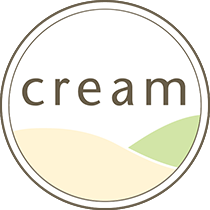Clos Lentiscus
VISIT THIS PRODUCER'S WEBSITE
LOCATE ON GOOGLE MAPS
VISIT IMPORTER'S WEBSITE
Country of Origin: Spain
Location: Penedès, Catalunya
People: Manel & daughter Núria Aviñó, Owners & Winemakers
Viticulture: Practicing Biodynamic
Items
| Clos Lentiscus 2017 'Perill Noir' Carinyena, Penedes DO | Login | — | In Stock |
| Clos Lentiscus 2012 'Perill Noir' Sumoll, Penedes DO | Login | — | In Stock |
Manel Aviñó (aka the bubble man) is making some of the most exciting sparkling wines—not just in Spain but in the world.
If you were to blindly taste Clos Lentiscus, it is a real probability that you’d think you were tasting grower Champagne. Pepe Raventós from Raventós i Blanc is a strong advocate that the Penedès terroir produces sparkling wines of profound mineral expression that can compete with the best in the world; Manel’s Clos Lentiscus cuvées greatly support Pepe’s case.
In 2001, Manel and his brother Joan returned to their family’s 14th century estate Can Ramon after the death of their father. Conventionally farming the land, their father sold the fruit instead of commercially selling wine. In the 19th and 20th centuries, Can Ramon had a successful history of selling wine to France and the American colonies (factors such as the Spanish Civil War, phylloxera and industrialization ultimately lead to its decline). Clos Lentiscus was created to recover the brilliance the estate once enjoyed and to continue the work of past generations.
The estate is located at 740 feet in the small town of Sant Pere de Ribes near Sitges. To the northeast is the rugged land of the Garraf Mountains and to the south is the Mediterranean Sea. The property sits on a calcareous mass, with shallow soils containing marine fossils. The coastal climate and special soil contribute a unique mineral character.
Organic (certified by CCPAE) and biodynamic (certified by Demeter) farming methods have transformed the property into a living, breathing ecosystem. These methods are used to encourage a healthy estate with energy and soul, and thus wine with energy and soul. No pesticides or herbicides are used. The phases of the moon dictate planting, pruning, harvesting and bottling. Bee hives help pollination. Sheep fertilize the soil and graze the property to naturally control weeds. Plowing occurs with Ringo, the horse.
The work in the cellar reflects the land; Manel interferes as little as possible. Primary and secondary fermentation occur with native yeast. Ambient yeast harvested from the wine tanks and honey harvested from their bees are used to spark the second fermentation in bottle. No other additions or enzymes are used. Manel stopped using sulfites when his wife got diagnosed with stomach cancer. While as natural as it gets, there is no funk. Elegance, purity and crisp minerality define Clos Lentiscus.
Media Links
Sprudge: The Very Best of Third Coast Soif 2018


